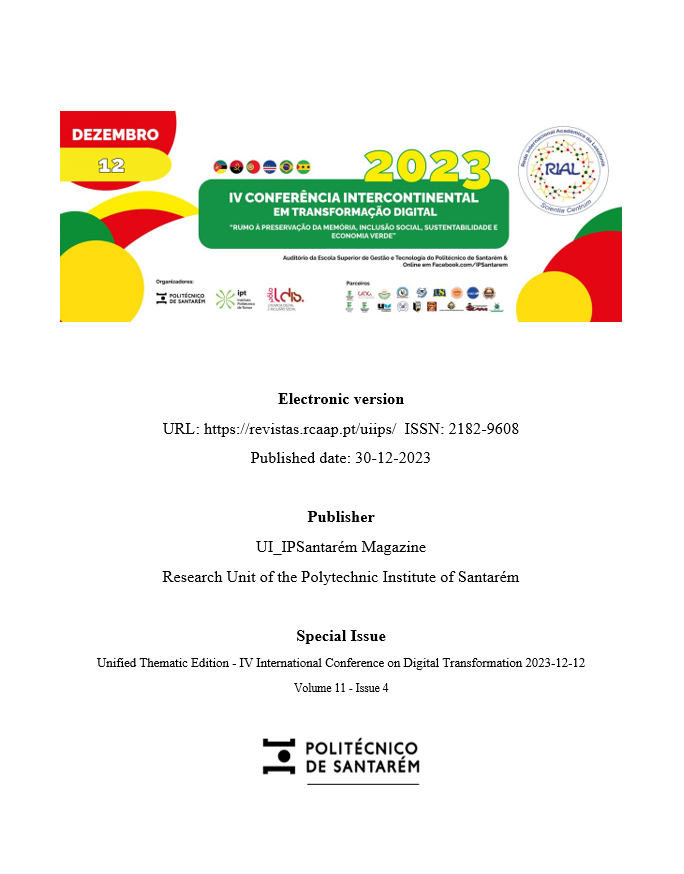Posthumanism and Education: the Potential of Artificial Intelligence in Higher Education
DOI:
https://doi.org/10.25746/ruiips.v11.i4.35989Keywords:
Artificial Intelligence, Higher Education, Inclusion, Post-Humanism, EducationAbstract
This article addresses advancements in scientific research and practical initiatives related to Artificial Intelligence (AI) and Inclusion in Higher Education. Drawing from a systematic literature review conducted by Crompton and Burke (2023) and the UNESCO 2020 Report, the study aims to provide a comprehensive overview of the current state of AI in Higher Education.
The scientific review analyzed 138 original, peer-reviewed studies (2016-2022), revealing an exponential increase in scientific production on AI in recent years. The majority of studies are conducted in Asia, Europe, and North America, underscoring the growing importance of this subject. The Education sector leads, representing 28% of the studies. The uses of AI in Higher Education were categorized into assessment, prediction, student assistance, intelligent tutoring systems, and learning management. AI emerges as a vital tool, positively influencing student assessment, performance prediction, personalized support, and educational data analysis.
In the realm of inclusion, 45 promising initiatives were identified in the UNESCO report. Thirteen of these are led by Higher Education Institutions, distributed globally. Four fundamental areas of intervention were outlined: promoting access to AI and innovation, increasing access to learning opportunities, enhancing learning effectiveness, and combating gender inequality.
The analysis of results highlights geographical differences between research and ongoing initiatives. While most studies are produced in traditional knowledge centers, practical actions are concentrated in regions where access to education has historically been limited. This disparity underscores the transformative potential of AI in challenging contexts. The study emphasizes the central role of students as the primary beneficiaries of AI in Higher Education. Both in research and initiatives, AI is perceived as a catalyst for learning, providing greater autonomy and overcoming cognitive and social barriers for diverse student groups.
In conclusion, this study contributes to understanding the promising potential of AI in Inclusion in Higher Education. AI, framed within the context of Post-Humanism, emerges as a technology that can transform education, providing more inclusive and integrated processes. The focus on autonomous and individualized learning highlights AI's ability to meet the diverse needs of students, aligning with the principles of equity and educational transformation.
Downloads
Published
How to Cite
Issue
Section
License
Copyright (c) 2024 Luís Rodrigues

This work is licensed under a Creative Commons Attribution-NonCommercial-NoDerivatives 4.0 International License.
Authors publishing in this journal agree to the following terms:
Authors retain copyright and grant the journal the right of first publication, with the article simultaneously licensed under the Creative Commons Attribution License that allows sharing of the work with acknowledgement of authorship and initial publication in this journal.
Authors are permitted to enter into additional contracts separately for non-exclusive distribution of the version of the article published in this journal (e.g., publish in an institutional repository or as a book chapter), with acknowledgment of authorship and initial publication in this journal.
Authors have permission and are encouraged to publish and distribute their work online (e.g., in institutional repositories or on their personal webpage) at any point before or during the editorial process, as this may generate productive changes, as well as increase the impact and citation of the published work.



